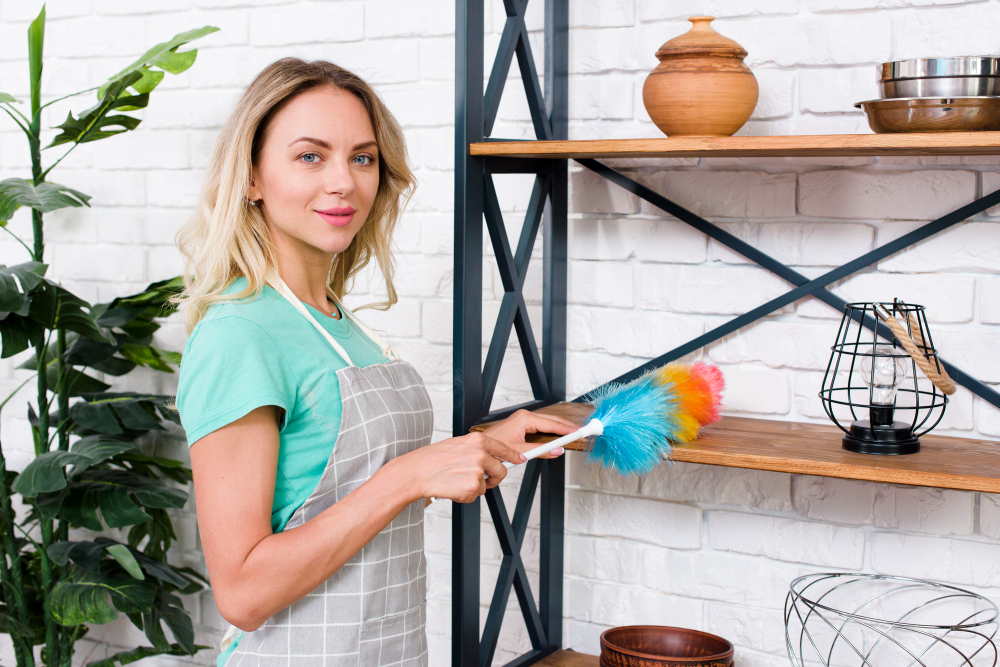Stucco Maintenance: Soft Washing vs Power Washing
When it comes to maintaining the exterior of your home, the decision on how to clean stucco surfaces can make a significant impact. Stucco, known for its durability and aesthetic appeal, is a popular choice among homeowners. However, its textured nature also makes it susceptible to dirt, grime, and algae accumulation, which can detract from its appearance and potentially damage the material.
In this blog post, we will explore whether you should power wash stucco or if safer and more effective alternatives are available.
Understanding Stucco and Its Vulnerabilities
Stucco is a material made from aggregates, a binder, and water, creating a dense, solid surface that’s applied in several layers. This construction method provides a hard, durable exterior wall coating. Despite its robustness, stucco has its vulnerabilities. It can absorb moisture, leading to problems like mold growth and structural damage if not properly maintained.
The decision to clean stucco is crucial, but the method of cleaning can make all the difference. Aggressive cleaning techniques, like power washing, can sometimes cause more harm than good. Therefore, it’s essential to consider the nature of stucco and its reaction to high-pressure cleaning techniques before proceeding.
The Risks of Power Washing Stucco
Power washing, often revered for its quick and effective results on various surfaces, might not always be the best choice for stucco. The high pressure can force water into the porous material, potentially leading to moisture retention inside the walls. This trapped moisture can cause paint to peel, create cracks, and foster mold and mildew growth, undermining the structural integrity of the stucco.
Moreover, the force exerted by power washers can erode the surface of stucco, especially if it’s aging or not in optimal condition. This erosion can lead to uneven surfaces and the need for repairs, which could be costly. Given these risks, homeowners need to consider gentler alternatives that can clean effectively without causing damage.
Soft Wash Stucco: A Safer Alternative
Soft washing is a cleaning method that uses low-pressure water mixed with specific cleaners that are designed to kill mold, algae, and other organisms without damaging the surface. This technique is particularly well-suited for delicate surfaces like stucco. By using soft wash stucco techniques, you can ensure that your home’s exterior is cleaned thoroughly without the risk of damage that high-pressure washing can cause.
The cleaners used in the soft washing process are biodegradable and designed to adhere to and treat the stucco surface gently. This approach not only cleans the surface but also treats the root of common problems like mold and mildew. Soft washing can extend the life of stucco by preventing aggressive scrubbing or erosion and by addressing the microscopic growths that can cause long-term damage.
When to Hire a Professional
While some homeowners may feel comfortable tackling exterior cleaning independently, softwashing stucco often requires a professional touch. Professionals have the right equipment, cleaning solutions, and expertise to handle the specific needs of stucco surfaces without causing harm. They can also assess the condition of the stucco and recommend preventive measures to protect against future damage.
Hiring a professional ensures that the job is done safely and effectively and saves time and potentially money on costly repairs due to improper cleaning methods. Professionals will also be aware of local regulations regarding chemical use and water runoff, ensuring that your cleaning project is compliant.
Routine Maintenance for Longevity
Beyond cleaning, regular maintenance is crucial in preserving the integrity and appearance of your stucco home. Inspect your stucco regularly for any signs of damage or wear. Small cracks and chips should be repaired promptly to prevent water infiltration and further deterioration. Additionally, consider applying a waterproof sealant every few years to help protect the stucco from moisture and UV damage.
Routine checks and maintenance not only keep your home looking its best but also prevent the buildup of dirt and organisms that can necessitate more frequent cleanings. By being proactive, you can extend the lifespan of your stucco and avoid the need for extensive repairs.
The Best Practices for Cleaning Stucco
In conclusion, while power washing can be effective for many surfaces, it poses significant risks when used on stucco. The high pressure can lead to moisture problems, surface erosion, and other damage. Instead, soft wash stucco methods offer a safe and effective alternative, ensuring that your home remains clean without compromising the integrity of the stucco.
Regular maintenance, combined with professional cleaning, can keep your stucco in top condition for years. Choosing the right cleaning methods and keeping up with routine upkeep can protect your investment and keep your home’s exterior beautiful and durable. Remember, the best care for your stucco is gentle and thorough—ensuring it withstands the test of time while retaining its aesthetic appeal.
Read More:
Power of Soft Washing

Why Soft Washing is the Smart Choice for Homeowners

Why Opting for Soft Roof Washing is a Smart Home Maintenance Decision
About us

Follow us on social
We respond within 48 hours
